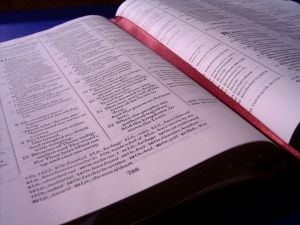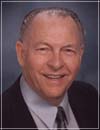What Is Clear Biblical Teaching? Part 3
by John C. Whitcomb, Th.D.
Read Part 1 and Part 2.
 Handling the Scriptures accurately must be an extremely important (and relatively rare) characteristic of pastor/teachers, for “they who labour in the word and doctrine” are “worthy of double honour” (1 Tim. 5:17 KJV). This handling involves discerning prayer (“Open Thou mine eyes, that I may behold wondrous things out of Thy law” [Ps. 119:18]), as well as patience, self-discipline, and spiritual humility. It also requires courage to change our theological convictions when necessary. As we have seen, new insights into revealed truth may come through the perspectives of other men of God.
Handling the Scriptures accurately must be an extremely important (and relatively rare) characteristic of pastor/teachers, for “they who labour in the word and doctrine” are “worthy of double honour” (1 Tim. 5:17 KJV). This handling involves discerning prayer (“Open Thou mine eyes, that I may behold wondrous things out of Thy law” [Ps. 119:18]), as well as patience, self-discipline, and spiritual humility. It also requires courage to change our theological convictions when necessary. As we have seen, new insights into revealed truth may come through the perspectives of other men of God.
Once theological truth is discovered, we have the obligation before God to believe it and to obey it, for “whoso looketh into the perfect law of liberty, and continueth therein … this man shall be blessed in his deed” (James 1:25).
Or, negatively, “to him that knoweth to do good, and doeth it not, to him it is sin” (James 4:17).
What does God’s written Word do for the believer? “All Scripture is given by inspiration of God” and “is profitable,” not only “for doctrine,” but also “for reproof, for correction, for instruction in righteousness,” in order “that the man of God may be perfect, throughly furnished unto all good works” (2 Tim. 3:16-17).
Tragically, many who think they are Christians may not be. To such God has given an ominous warning: “If we sin willfully after that we have received the knowledge of the truth, there remaineth … a certain fearful looking for of judgment” (Heb. 10:26-27).
Therefore, God’s people must “consider one another to provoke unto love and to good works … exhorting one another: and so much the more, as ye see the day approaching” (Heb. 10:24-25). But who can really tell whether one interpreter of the Bible is more accurate than another? In the long run, our Lord assured us, “ye shall know them by their fruits” (Matt. 7:16). This is what the apostle John wrote about false teachers: “they went out from us, but they were not of us; for if they had been of us, they would no doubt have continued with us: but they went out, that they might be made manifest that they were not all of us” (1 John 2:19). The fruits of false or inadequate biblical instruction will be seen by God’s people sooner or later, for only sound teaching can produce maturity in the lives of those who love and obey Him.
In this light, note the sad condition of many who first read the book of Hebrews:
Ye are dull of hearing. For when for the time ye ought to be teachers, ye have need that one teach you again which be the first principles of the oracles of God; and are become such as have need of milk, and not of strong meat. For every one that useth milk is unskilful in the world of righteousness: for he is a babe. But strong meat belongeth to them that are of full age, even those who by reason of use have their senses exercised to discern both good and evil. (Heb. 5:11b-14)
What particular teaching of Scripture were these Christians unwilling to think about? It was the high priesthood of our Lord Jesus Christ “after the order of Melchisedec” (Heb. 5:6). Is this a clear biblical teaching? Is it important for all of us to understand and to share with others?
 Dr. John C. Whitcomb has been a professor of Old Testament and theology for more than 50 years and is widely recognized as a leading biblical scholar. He taught at Grace Theological Seminary (Winona Lake, IN) from 1951-1990 and gained much recognition for his work on The Genesis Flood (Presbyterian and Reformed Publishing Company), which he co-authored with Dr. Henry Morris in 1961. That book has been credited as one of the major catalysts for the modern Biblical creationism movement. His ministry homepage is Whitcomb Ministries, and his sermons are available at SermonAudio.com. Dr. John C. Whitcomb has been a professor of Old Testament and theology for more than 50 years and is widely recognized as a leading biblical scholar. He taught at Grace Theological Seminary (Winona Lake, IN) from 1951-1990 and gained much recognition for his work on The Genesis Flood (Presbyterian and Reformed Publishing Company), which he co-authored with Dr. Henry Morris in 1961. That book has been credited as one of the major catalysts for the modern Biblical creationism movement. His ministry homepage is Whitcomb Ministries, and his sermons are available at SermonAudio.com. |
- 4 views


Discussion